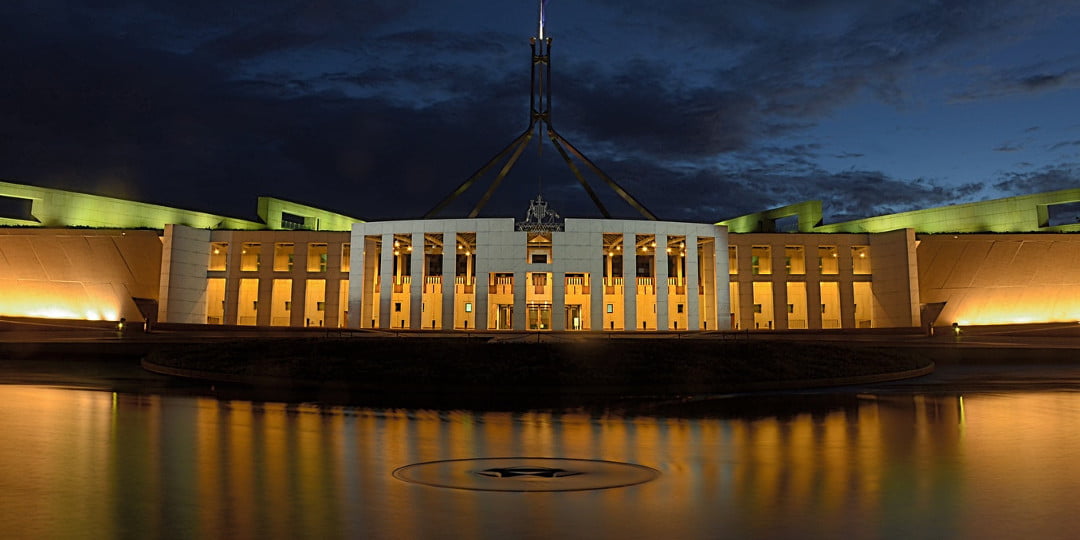A repost of an article published in June 2016.
The day of the 2010 Federal Election I cast my vote then took my eight year old son to his soccer match. Lachlan’s team was made up of kids from the Christian school he attended, which meant the majority of the parents at his game that day were evangelical Christians. When conversation turned to the election I commented that I had voted for the Greens.
The response shocked me. Mouths dropped open and with exasperated voice a number of the parents asked how I could possibly have voted for the Greens. After all, they were in favour of same-sex marriage! I pointed out that they were also in favour of a strong international aid program at a time the major parties were reducing aid; that they were in favour of considerate treatment of refugees at a time when both major parties were playing some pretty ugly politics with refugees; and that on balance these things swung my vote. It didn’t help. In the eyes of some of these parents it was as though I had voted against God.
So, how should we vote? I see four patterns.
First, some vote purely out of tradition. Their parents voted Liberal and they vote Liberal. Always have, always will.
Second, some vote out of self-interest. Their vote will go to the party that they believe will put money in their pocket and public services at their disposal.
Third, some vote for their moral vision. Their vote will go to the party that they see representing their values.
Fourth, some vote for justice. Their vote will go to the party they believe will do most to promote a just society.
No prizes for guessing that I sit in category 4 and my critics that Saturday belonged in category 3.
I’m not here to spruik for the Greens, the ALP, the Coalition, Family First, or any other party. What I do want to do is open up a simple question: what should influence the way a Christian votes? I’d like to suggest that we need to bring together two things: a Christ-shaped vision for what our communities can be and a clear understanding of the role of government.
First, the gospel gives us a vision for what our societies can be. The message of the gospel is not that our soul can go to heaven when we die but that God is at work to redeem and renew the entire creation. That means renewing and redeeming individuals, communities, economic, social, cultural and political systems, and the planet itself.
Second, government has an important but very limited role to play in moving society toward this vision.
For most of western history we got this horribly wrong. From the conversion of the emperor Constantine until the peace of Westphalia we saw the church and state working in tandem to try and command a Christian society into being. It was an unmitigated disaster.
Cromwell’s England was painted like this
Pointless enjoyment was frowned upon. Cromwell shut many inns and the theatres were all closed down. Most sports were banned. Boys caught playing football on a Sunday could be whipped as a punishment. Swearing was punished by a fine, though those who kept swearing could be sent to prison.
On Sunday most forms of work were banned. Women caught doing unnecessary work on the Holy Day could be put in the stocks. Simply going for a Sunday walk (unless it was to church) could lead to a hefty fine.
During his time as head of government, he made it his task to ‘tame’ the Irish. He sent an army there and despite promising to treat well those who surrendered to him, he slaughtered the people of Wexford and Drogheda who did surrender to his forces. He used terror to ‘tame’ the Irish.
And so the very first call for freedom of religion recorded in the English language came from the founder of the Baptist Church, Tomas Helwys, when he wrote a tract calling on the king to protect the religious freedom of Muslims, Jews, Christians and atheists.
Christendom gave way to pluralist liberal democracy. This severely limits what the government can and can’t do. To say a society is liberal means there are fundamental freedoms and rights that must always be respected. Freedom of speech, freedom of religion, freedom of conscience to name a few. To say it’s pluralist means we accept that we will not all think the same, believe the same or live the same way. In a society such as this the role of government is to ensure every individual and every group is able to share in he benefits of society while pursuing the lifestyle and the values they choose.
In other words, the role of government is to facilitate the common good, ensure public goods such as education, infrastructure and health systems are accessible to all, and to make sure every citizen and every group of citizens is treated justly.
So what does this mean for voting? For me it means I ask two questions
- Which party will ensure public goods for all citizens?
- Who is excluded, vulnerable or oppressed in our national/globalcommunity? Which party will secure justice and inclusion for them?
The question I won’t ask is which party will legislate my personal vision of morality. It is not the role of the government to force people to live by Christian ethics. It is the responsibility of Jesus followers and the church to live in such a way that people see the merits of following Christ and living his way. I will endeavour as best I can to live virtuously and I will vote for justice.








Why I Won’t Vote my Values | https://t.co/6loqoINYbU https://t.co/qeZ8lbtGIn
A simply wonderful piece!!!!
Thanks Mary
The 4 ways Christians vote:
1. tradition
2. self interest
3. personal values
4. justice
(Thanks Hamo for the link)
https://t.co/764BBeBXEX
This is such a great piece! I live in the US, and as a liberal Christian I am sharing this with all my fellow believers who feel voting one particular party because of a candidates so-called espoused beliefs make them the right choice.
Glad you’ve ffound it helpful
Do you believe that Jesus would vote for the Greens?
Hi Chris
I wouldn’t like to declare who Jesus would vote for and the point of my post was not to champion the Greens. I have yet to go to an election where I can say amen to all their policies. With regard to the greens I find some of their policies wanting but many that I can heartily support.
Why I Won’t Vote my Values | https://t.co/W4z8usfOJx https://t.co/0zOhZwioec
RT @jarrodmckenna: The 4 ways Christians vote:
1. tradition
2. self interest
3. personal values
4. justice
(Thanks Hamo for the link)
http…
Scott,
I like this piece, it makes you think about how to make a well thought out decision on Election Day.
I also agree that the government is not the role of government to make people Christians.
I would appreciate your view of some of the greens policies and how that should affect our voting. In particular, the policy that would significantly reduce freedom of religion and freedom of speech (eg Christian schools not being allowed to require teachers to have Christian values – something not applied to other organisations)
Hi JT,
Plan to make a few posts on this over the coming week.
Why I Won’t Vote my Values | https://t.co/3JPdLPC7KU https://t.co/9UHSdYOwkR
Whilst I wholeheartedly agree with your views on voting for the good of others, refugees, the environment etc, I think people can very naively vote for The Greens thinking they are helping the environment (not realizing they are also voting for a whole raft of scary policies on social engineering and removing religious freedom, which in my opinion doesn’t only affect religious people, ultimately). As a Christian environmental activist for many years, I used to hand out how to vote cards for the Greens. I get the impression your vote was intended to have a shock factor! Is that right? Why are your kids not in a public school, rather than an elite school – this seems to undermine your argument somewhat… If you are talking about justice wouldn’ t that also extend to other voiceless groups (the bible calls us to be a voice for the voiceless) such as the unborn, elderly/infirm and children generally ie their human right (International Human Rights Convention) to their biological parents? i wonder if your need to think more broadly about how policy can affect religious and non religious alike eg removing religious freedom as per The Greens will ultimately be affecting people who may wish to follow Christ in the future – a justice issue also, perhaps?
Thanks for taking time to comment Kate. No my comment to my friends wasn’t intended for shock value…and it’s a rather jaundiced conclusion to reach on the basis of what I wrote.
Yes I have concerns about the Greens views on exemptions to anti-religious discrimination law and plan to blog on it in the coming week.
My piece was not intended as an endorsement or disendorsement of the Greens. Just wanted to raise some questions
Btw I wouldn’t touch The Greens with a barge pole now! Like Labor, they are definitely not what they seem…
I agree that our vote needs to be carefully considered, however, how do you reconcile your use of “pluralist” society with the censorship and condemnation applied to anyone who dares to disagree with prevailing mob opinion? If freedom of speech is sacrosanct in a pluralist society, surely it should apply to all.
Yes, so…?
I think you’ve missed the mark about the role of government. You need a much bigger picture of the importance of God’s authority.
Romans 13 says “Let everyone be subject to the governing authorities, for there is no authority except that which God has established. The authorities that exist have been established by God.” Ultimately, God is interested in people who turn to Him and accept his Son. He isn’t interested in “the common good, ensure public goods such as education, infrastructure and health systems are accessible to all, and to make sure every citizen and every group of citizens is treated justly”. These are things we selfishly and greedily claim as rights, when the majority of people in the world are working hard for their next meal because their government makes bad decisions. Here’s the apostle Paul, locked in a Roman prison at the behest of the very authorities he mentioned in the scripture above, but all he says is ‘Do what they say”. In the end, he dies a terrible death as a human candle in Nero’s garden. So much for being a Roman citizen. Sure we can be salt and light, and we can cry out against all forms of injustice, and isn’t there plenty of that. But, ultimately, we have to say that God knows what he’s doing, that he allows governments to act for the common good as well as against the common good, and why? So that through hardship and trial, a people that won’t cry out to him is brought to their knees and begins to cry out to a God who loves them. God’s not in the business of ensuring the common good or the provision of education, infrastructure or health on their own except for how these privileges might allow people to be free from their oppressive circumstances long enough to hear the Word. To that end, the answer to who to vote for comes out of relationship with the Father in such a way that the Spirit gives us the wisdom we need to make a decision that is based upon his authority, his provision and his Word.
Read more https://scottjhiggins.com/why-i-wont-vote-my-values/#.V1hLBpF96Cg
So shall I just rip Isaiah 65:17-25; Isaiah 58; Amos; Micah; Matthew 5.43-48; James 5:1-5; Proverbs 31;1-9; revelation 13 out of my bible?
I could not agree with you more Scott; re the virulent opposition of evangelist Christians against the Greens mainly bec. of their endorsement of same sex marriage and bec. of their alleged lack of sympathy for funding religious schools. But of all parties it is the Greens who show by far the greatest compassion for refugees, foreign aid, overall education, climate change etc. They are the only party that are in line with Jesus’ command to take care of the least of our brothers and sisters. Mathew 25.
God bless,
Andris
They show no compassion for the unborn. On this issue, our values should dictate our vote, for sure.
Greg,
You can’t be serious when you say that God is not concerned about the common good. Please read Mathew 25 a hundred times and the Penny might just drop.
Blessings,
Andris
Why I Won’t Vote my Values | https://t.co/KhhOHO1Kpi https://t.co/1wMKwkqiTy
Another perspective.
https://t.co/ifdkCHfgAO https://t.co/ihxG98todg
I agree we should all learn to live together regardless of our beliefs, and Government should, for the most part, make that possible. Nations that legalise SSM have a poor track record in keeping with freedom of conscience and speech. Even those that still hold natural marriage, like ours, are being infected by this lack of regard for pluralistic values. The Catholic Bishop in Tasmania, Julian Porteous, comes to mind. The Greens are the party that move most toward removing freedom of speech, freedom of religion, freedom of conscience for their singular morally acceptable version of society. A vote for the Greens is a vote against liberal society. My wife and much of her family have are refugees from Myanmar, some of their friends have been caught in terrible conditions in the process of moving. They move for economic stability and political freedom. The Greens economic and morally singular policies would ruin both of these making us in the future a Nation not worth seeking refuge in. So my conclusion is you cannot divide values and justice when voting. Long term they are one and the same.
And I forgot to mention, the Greens long term policies on the environment are, to my mind, as good as 20 century Marxism to the proletariate. Great in theory but disasterous in practice. I worked part time as a ranger with Little penguins for 15 years and currently run an outdoor activity business based on the coast. I think it’s fitting that the majority of Greens voters live in the big smoke, whereas many of us who rely on the long term future of a healthy environment for our lively-hood (and lifestyle) wouldn’t touch them with a barge pole.
I don’t neatly fit into your categories, but I like what you’re saying. As a previous political adviser, my wife has always said “you can’t legislate morality”. It’s not government’s role. It’s also tricky to ever get your proposed plans through parliament even if you win power. So no matter what the promises made during campaigns you can’t really tell what will happen in the future. Very tricky.
Thanks Stu. Yes, promises do not equate to enacted outcomes
Realistically, the policies resulting from your two questions would be an increase in welfare, foreign aid and refugee intake (and taxes) – applying to the whole of Australian society, whether they like it or not.
The other parents want to impose their values of sexual purity on Australia; you want to impose your values of social justice. I think there’s a good argument to be made that your values are better, or more suitable for a diverse population, but there are values behind those policies just as much as any others.
Hi Ehud,
I agree that justice is a value. My point is not that one is a value and the other is not but that the values on which government should act are very limited and are focussed oN justice
Thanks Scott … very helpful piece. Why is it that when social justice issues, which are so clearly evident throughout the Bible, and embraced and taught by Jesus, are spoken and written about, that these can so easily ignored when it comes to the political debate at election time? Is it because a conservative outlook simply means asking the government to maintain my values without any required investment from me? This is preferable perhaps to a position of supporting the widows and orphans and loving our neighbours, which requires a deep investment of ourselves?
Good questions Warren
Come to think of it, the answers to my questions lie within various combinations of 1, 2 & 3 … pushing 4 completely to the periphery. Also pushing the justice and compassion priority of 4 off the agenda, is the notion that in the end solutions for refugees and proper applications of foreign aid are too hard and therefore have to be necessarily left aside. But they are only too hard for the politically (& value) aligned … there are many smart people with solutions if they were given the space and opportunity to work them through. For example, I’m sure Tim Costello with a few good colleagues could work through a very effective and targetted foreign aid program. But then, a popularist approach is much easier. For me this is just too cynical or (sin)ical.
Two thoughts. 1) This is liberalism is a very good thing. Like Mirislav Volf talks about with public pluralism, vs public exclusivism.
So why is it ok for Labor and the Greens to threaten our current liberal, public pluralism? Why is it ok for to enforce exclusive secular humanism on schools, and to impose a certain gender ideology on schools, and to redefine the definition of marriage? The status quo is not Christendom. What the left are proposing is a direct line toward illiberal public exclusivism. That’s what worries me.
2) As for the most just policies, they aren’t as easy to pick as they first seem. Yes we want better processing for refugees, but by increasing the intake of those languishing in refugee camps overseas, not by increasing the flow of people dying at sea… reality makes it more complicated. Yes we want more overseas aid, but by maximising the use of trustworthy partners that will actually use it effectively, not partners who waste the money which happened all too often in times past. Yes we want to move off fossil fuels to sustainables, but by genuinely effective design and large scale infrastructure change, not by going bankrupt in the process so nothing is actually achieved… Yes we want more non-violent solutions to war, but ones that actually do break violence cycles, not merely allowing the defenceless to be slaughtered… real world policy is more complicated than it seems when you are a minor party pontificating without having to actually make real decisions in the real world. So whilst the Greens are in the luxurious position of posting aspirational policies, other parties have tried to post policies that are more realistic, and therefore look less righteous. But in fact the more compromised policies may be slower but more effective, and thus more righteous in the real world.
Hi GW, can’t agree with your statement that the left are leading us to public exclusivism. Agree that it isn’t easy to pick the most just policies.
The Greens speak of democracy, but then their values policies seek to enforce, not just allow, but force upon the rest of Australia. Under their policy (and even now!) if you don’t redefine marriage to what we want, we will fine you, jail you, remove your kids and re-educate you. How is that not public exclusivism? Under the current system, we keep the word marriage as it has always been, but do allow LGBT to have a union that is pretty much the same as well. That is not forcing anything on anyone = public pluralism. Same for excluding religion from schools, that only leaves one worldview represented by schools = public exclusivism.
[Seems bizarre to me that we who say keep the language of marriage as it has been for millennia, are being accused of meddling in values, yet those who are already forcing a new definition of values to the exclusion of others, are not?!]
Hi GW,
I think there are concerns around the greens policy of removing religious exemptions to the anti discrimination act, but I don’t know of any Greens policy or plan to “fine you, jail you, remove your kids and re-educate you.”
Yes, good correction, not policy, a trajectory perhaps. I extrapolated from various occasions within Australia of anti-discrimination and offense laws being vexatiously used as weapons against proponents of traditional marriage and religious education. If this is what is happening now, what will happen if the laws actually change? Labor is saying there should be no exemptions. So my main point remains.
Hi Scott,
I appreciate your perspective, and it resonates with my experience.
I am concerned, however with the more frequent and strident attacks on religious freedoms. In attacking Christianity and Faith in general, the Greens are turning away some of the biggest supporters of equality and refugees.
I have not come to the point of voting for the right wing, but see danger on the left – and precious little standing in the middle facing north.
Best regards,
Thanks Warwick. I share your concerns with Greens policy to remove religious exemptions form the anti-discrimination act. Ay the moment I think the Act provides a blanket exemption that is too wide, but it needs a more nuanced response than simply removing the exemptions.
What an amazing piece! I’ve always been astounded at how many Christians I disagree with on politics, and this is an incredibly helpful explainer of my position. (PS can you fix the typo on the last paragraph, second sentence?)
Thanks. Typo fixed.
Hey Scott,
I know you said you are not endorsing the greens… But as a Christian who has thought like you about voting for justice… I am just curious How you reconcile their policies on euthenasia and abortion with their policies? The aid budget is probably the thing I think about the most but I second to that are two above for me… Any thoughts would be appreciated.
I wouldn’t defend the Greens policies abortion and euthanasia. Having said that, the freedom to terminate a pregnancy is seen as a conscience issue by the public and in Australian politics, with the result that all major parties in practise support it. Given this I think the way forward for those of us who are committed to the life of the unborn is to work towards a change of attitudes in the wider population rather than legislative change. On euthanasia I think the issues are quite complex and we need a considered national debate.
I like it Scout. Thanks!
Great thoughts overall, but a couple of major errors, I think. Surely a desire for a “just” society is also a moral value? As a Christian I also desire a just society, because justice is good (good is a measure of morality). I also believe in natural marriage, and not in same-sex marriage – natural marriage is also good for all. I think it is very unfair – and unjust – to say some people’s values/beliefs are “personal” and therefore selfish, and some other people’s values/beliefs are somehow for the “common good”. Surely living God’s way (natural marriage; not aborting kids; and living justly; restraining criminal behaviour; etc.) is best for all society.
Hi Nathan,
Thanks for the comment. You are correct that justice is a moral value. It is not my intention to suggest otherwise.I was contrasting those moral values that relate to justice (i.e. where a person or group are being oppressed or exploited) and those that represent our conscience but don’t involve injustice and I am arguing that the State has an interest in the former but not the latter. For example, children lying to their parents is a moral failure but only rarely a failure of justice. I don’t expect the State to legislate to stop children lying to their parents. Yet a business that lies to its customers by assuring them that a product is good when in fact they know it to be harmful is exploiting them and it is the business of the State to intervene.
Second, I wouldn’t characterise personal morality as selfish. My hope as a follower of Jesus is that all people will come to follow him and live the values of the kingdom of God. There is nothing selfish about that. Indeed, I believe it is in their best interest to do so. My argument is that it is not the Government’s role to persuade people to follow Jesus or embrace his values. That is the responsibility of the church and the believing community. The government has a very limited role in promoting a virtuous society and that is to act in areas that involve justice.
“It is not the role of the government to force people to live by Christian ethics. It is the responsibility of Jesus followers and the church to live in such a way that people see the merits of following Christ and living his way.”
I think the trouble is that it’s much easier to lobby the government to legislate our values than it is to really follow Jesus’s living example of loving and serving all humankind! That costs too much…
You seem to be implying justice for all means stealing from one person to give something to another. I doubt that is what Jesus desired for society. Instead, Jesus gave the rich man a choice. Likewise, other followers like Lydia(seller of purple) aided her society voluntarily without any command from Christ for government to force her to do so. Not only is a welfare society un-Christian. It is anti-Christian. With voluntary charity, people can choose where their giving goes and can hold those accountable who oversee it’s distribution. But with involuntary charity, they are robbed and have no way to withhold their giving or give somewhere else when government abuses and misuses their money.
Well said, as a Christian who has long supported Justice and been a member of a Catalyst team for many years I agree. I have heard anti -gay rhetoric from ill-informed people. It is more important to consider all rather than limit the ability if two people who love each other to marry. Sadly many churches have focussed on one issue and alienated many
Scott, you challenged me in a refreshing way to look at my personal criteria when assessing who to vote for. Thank you that!
I want to say, however, that I’m not sure if I subscribe to your summary of the role of government – “the role of government is to facilitate the common good, ensure public goods such as education, infrastructure and health systems are accessible to all, and to make sure every citizen and every group of citizens is treated justly”. I agree with the last part of this statement i.e. to make sure every citizen and every group of citizens is treated justly. But I’m not sure about the first part i.e. in recent months my thoughts about government’s roleto facilitate the common good, ensure public goods such as education, infrastructure and health systems are accessible to all. As an economist, I always took it for granted that this was the role of government. But in recent months as I’ve been studying and mulling over more of the scriptures in the area of government, I’m beginning to question what I’ve been taught as the role of government. From cursory observations of scripture, government’s role is justice, law and order and protection of borders. But I just don’t see God laying the responsibility of the provision of so-called public goods at the feet of government. I see Him laying at the feet of other sectors of society but at government’s feet. I’m still thinking and weighing and asking the Holy Spirit about these thoughts … and so I have no definitive opinion on this, but I can safely say my “thoughts” on the matter are being challenged and are changing. This is not what your article is about so I hope you’ll excuse my digression. I just thought I’d share my thoughts.
Scott, it is good you’re thinking. I wonder, though, how you value “justice” in your decision but not the unborn. If I have a strong party like The Greens except better policies in every way (in your view) including no support for abortion. However there was a policy instead of pro-abortion with some strong economic benefits, namely to euthanise at least 50,000 of Australia’s oldest and sickest people each year, would you vote for my party? Or would the value of those 50,000 people and the poor folk associated with them be too great?
Hi Tim,
I am not arguing the Greens represent justice. I believe the termination of unborn children is an important issue of justice. In our political system all major parties have made this an issue of personal conscience, so how we best further justice for the unborn is a point on which there is room for debate
Hi Scott
Your article ends “I will vote for justice” and essentially begins by saying you voted for The Greens. Are you not therefore saying that when you voted for them that they best represented justice in your view?
As for me I can not in good conscience vote for a political party that demonstrably always backs abortion. Though I didn’t vote 1 Peter Dutton as my local MP today (I strongly disagree with him and the LNP on refugee stance amongst other things) I met him some months ago and he (said he) has consistently voted against abortion except in cases of rape. By contrast The Greens are widely known to be consistently pro-abortion in practice. For me voting to support a pro-abortion party would not be too unlike supporting the Nazis in their subjective selection of a group of people to de-humanise and “terminate”. With many tens of thousands of “terminations” each year in our small Aussie democracy and with the most stinging Old Testament criticism reserved for the sacrifice of children to Molech I can’t help but feel this abortion is perhaps the most important social justice issue to be addressed in Australia, and should be addressed first and foremost by the church, but also by government.
hi Tim,
None of the major parties is anti-abortion.
The Greens don’t “back abortion”. That would suggest that they promote and encourage abortion.
Their policy is to ensure that IF a woman decides to have an abortion, that it should be safe, accessible, and legal.
The Greens are not promoting moral values – because that’s not what we want from our politicians. The Greens are simply saying that IF a woman decides to have an abortion that she should be able to do it in a safe, accessible, and legal way. I think that this is horrible, and if I could stop it I would. But the alternative is much much worse.
As Christians we should do whatever we can, within reason and decency, to stop abortions. But to deny safe legal abortions is not the answer.
If we deny safe legal abortions, then rich women will still have abortions, and poor women will die, get injured, and get convicted whilst attempting abortions.
Greenguzzi – is a 39-week gestation abortion safe for the mother and for the baby being aborted? No worries at all for either?
See Rob Pyne’s latest bill for Queensland as supported by Queensland Nurses Union. It sets out no limit to abortion for any reason even up to birth.
Even at 9 weeks abortion causes harm to the mother and kills a living himan being. Just ask my non- Christian colleague whose daughter is still receiving counselling 4 years after an abortion at 9 weeks. She was horrified by Rob Pyne’s bill.
I guess Scott has answered my question by saying that there is no discernible documented policy difference between major parties on abortion. One must therefore look to historic voting precedent to predict what is likely to transpire.
Hi TIm,
To jump from “I voted for the Greens in 2010” to “I vote for justice” and conclude that I am therefore endorsing every Greens policy from here unto eternity as good and just is absurd. And i reiterate that abortion policy in Australia is bipartisan. Greens, ALP, Coalition all endorse the availability of abortion services.
Hi Scott
Your article says why you don’t vote values – and vote justice (though in my view a value). I am not saying you said you agree with the Greens on all matters, merely that you have believed when voting that The Greens, of the available political parties, best represent justice. I myself simply don’t understand your argument.
Regardless of documented “policy” there is a stark difference between the way each party votes on abortion, Scott, and if you are not as sure as I am please contact me. On the left many of The Greens HATE the right (a couple weeks ago listening to parliamentary debate The Greens attempted to treat ACL as radical extremists!).The Greens seem to always vote FOR abortion. Labor almost always votes for abortion. The LNP is the most nuanced and affords its members great freedom to vote according to conscience. Yet the LNP – despite voting more for justice in many regards, in my view – doesn’t go very well in my view on many fronts. In a 2 horse race, though, it is easily preferable to me.
According to our constitution, our government (at least federal) is NOT for “public goods.” We have been getting this wrong for over 100 years. The constitution provides a specific list of Federal powers and all the rest are reserved for the states. If “public goods” is a Federal power, there is NO limit on federal authority.
Other than that, I love this post.
Great article. I’d did the abc vote compass the other day and was told I align with the greens ! https://votecompass.abc.net.au/
Thanks this is still such practical common sense ! I appreciated it last time, it made me smile, and now forwarding to growing up grandkids. ( Oh and its spiritual too!! )
Pity you can not accept that the Greens are fundamentally aggressively anti -Christian. I am not advocating for any party in particular but the Greens I can not accept.
Hi John, I am not advocating for the Greens, butt I don’t see how you can characterise them as “fundamentally aggressively anti-Christian”.
Have you read their policies in respect of belief. I think that is where I am coming from Gaia is not cHristian, muslim, Jewish, Hindu, Buddhist in any way fundamentally it denies any belief in any god let alone a Christain God.I do not think you advocate that perhaps I am wrong
Hi John,
Their policies on religion are started primarily under the multicultural policy where they endorse strongly the right of people to practise their faith. I cannot find any mention of Gaia on their website. I haven’t seen the policies you refer to. Can you point me to where I can find them?
Scott , I only remember that Bob Brown carried on about it but I doubt whether they have changed just deleted as all political parties do these days
Lots to think about in the replies, but I like the questions
I took vote compass a few years back and found my values (including justice) didn’t match the conservatives I had previously voted for. Actually they don’t match the greens either. However, one thing at the recent nsw state election I found: based on a limited (I didn’t spend hours on it) web search, fir the major parties I couldn’t find anything but “sound bites” when looking for their values and policies. For the greens on the other hand, I could easily find their values and policies on a broad range of things – if transparency and openness were the key criteria I’d vote for the greens . Vote compass says I match another party much better
Well articulated and still so relevant now. I wonder if policies from the major parties on abortion have moved in this time. Have they?
Regards,
John P
Hi John, Not aware of any movement. As I understand it provision of abortion services is a matter for State legislatures not the Federal.
Very well put Scott. I totally agree with you but sadly many in the Community do not.
This is amazing. Thank you.
Thanks for articulating this so beautifully, Scott. It frustrates me that Christians can sometimes pretend that voting is a cut and dried affair of just voting what’s best for Christians only (the only thing that frustrates me more is the assumption that a Christian leader must be the best leader).